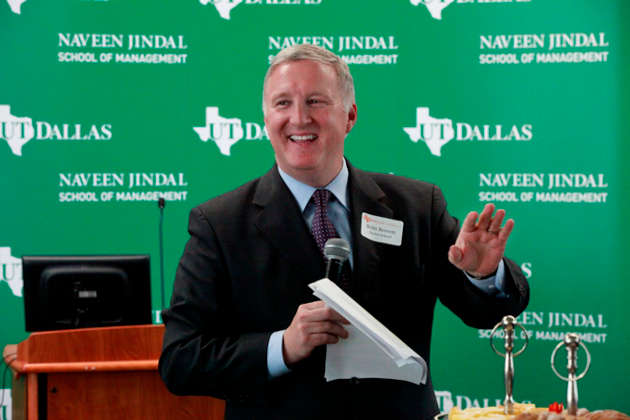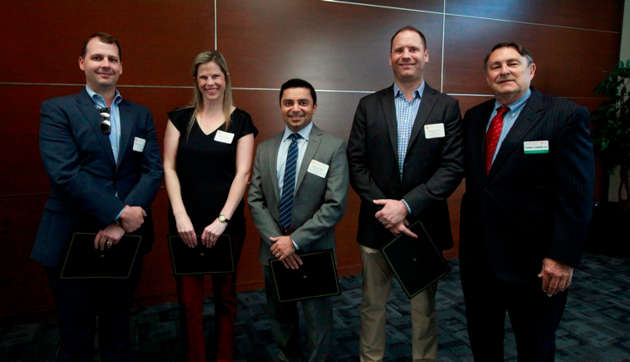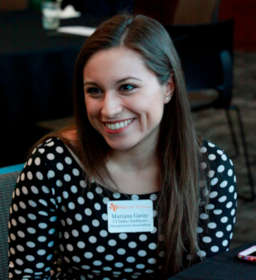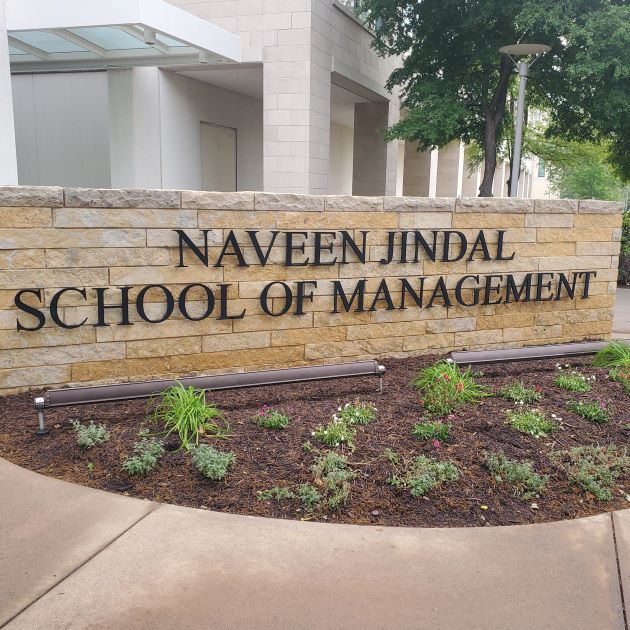
Fast-growing, appealing to diverse audiences and yet united in their efforts to make UT Dallas a thought leader in their discipline, the healthcare management programs at the Naveen Jindal School of Management have banded together to create a new Center for Healthcare Leadership and Management, which formally debuted April 20.
“The center is intended to bring all of the faculty together, reach out to many of you that are in industry and invite you to speak and lecture and be part of this great effort,” Dr. Britt Berrett, center director, told an audience of healthcare professionals, students and professors gathered at JSOM to mark the occasion with a brief program and reception.
Referring to the BS in Healthcare Management program, which he also directs, Berrett told the audience that “we started the program about a year-and-a-half ago, and already we have over 350 undergraduate students that are healthcare management declared.”
He added that finding internships and job shadowing will be an important part of enlightening those students when it comes to opportunities in healthcare.
Other JSOM healthcare management programs are the:
- MS in Healthcare Leadership and Management
- Executive MS/MBA in Healthcare Leadership and Management,
- Executive MS/MBA in Healthcare Leadership and Management, designed for physicians
- Executive MS in Healthcare Leadership and Management, designed for healthcare professionals
- Certificate in Healthcare Leadership and Management for Physicians, and
- Essential Elements of Accountable Care Organizations program.
Dr. Forney Fleming, director of the MS in Healthcare Leadership and Management program, reminded those at the debut that it is close to impossible to be in a managerial position in healthcare without a master’s degree. “Fifteen years ago, the master’s was optional for that kind of employment goal,” Fleming said. “Not anymore.”
He said that his program’s evening classes, flexible format and opportunity to complete all requirements online, allow students to continue to work full time, if they choose, while pursuing it.

Dr. Keith Thurgood, director of the Executive MS in Healthcare Leadership and Management program designed for healthcare professionals, envisioned the new center putting UT Dallas firmly on the map in terms of leadership in healthcare and management. “This can be a center of excellence for thought leadership,” Thurgood said. “Fundamentally, the industry needs to create leaders who will drive transformational change and who have a different skill set tomorrow than they have today.
“We know cost structures aren’t sustainable, and we need leaders to find alternatives,” Thurgood added. “The center will allow you to learn from many tools, including case studies, discussing problems and coming up with solutions.”
Away from the podium, Fleming said healthcare management is such a dynamic field that he changes his lectures every semester — to the point that he does not use a textbook. “The changes happen faster than they can print them,” he said. “But that makes it fun.”

One of his students echoed how exciting healthcare management courses and the center can be because of the unknown. “Like Professor Fleming says, they’re training us for jobs that don’t really exist…yet,” said Mariana Garay, presently taking the graduate American Healthcare System course with Fleming.
Berrett, who during his event speech referenced Robert Kennedy’s thought on how everyone can change a small part of the world, believes UT Dallas can play a big part in the future of healthcare through its ability to explore — with the center serving as a focal point for such endeavors. “This university and Texas are filled with entrepreneurs with creative ideas,” he said. “Within healthcare, it’s a structure and industry reluctant to change. This area has a perfect climate to bring engaged healthcare-minded individuals to the issues and find solutions. From the long waits in the lobby to how many bills you see, we have a terrific chance to improve efficiency.”





